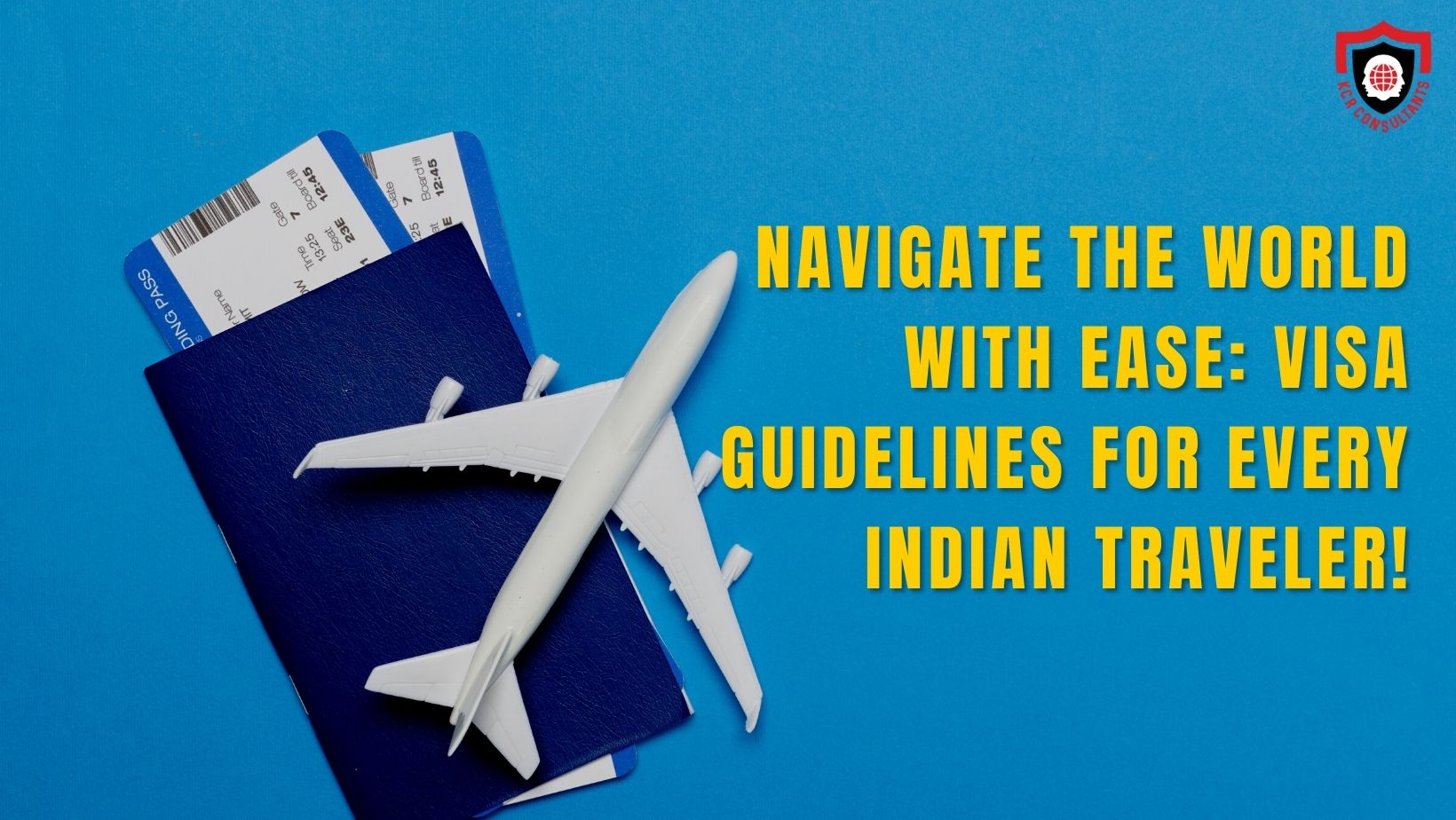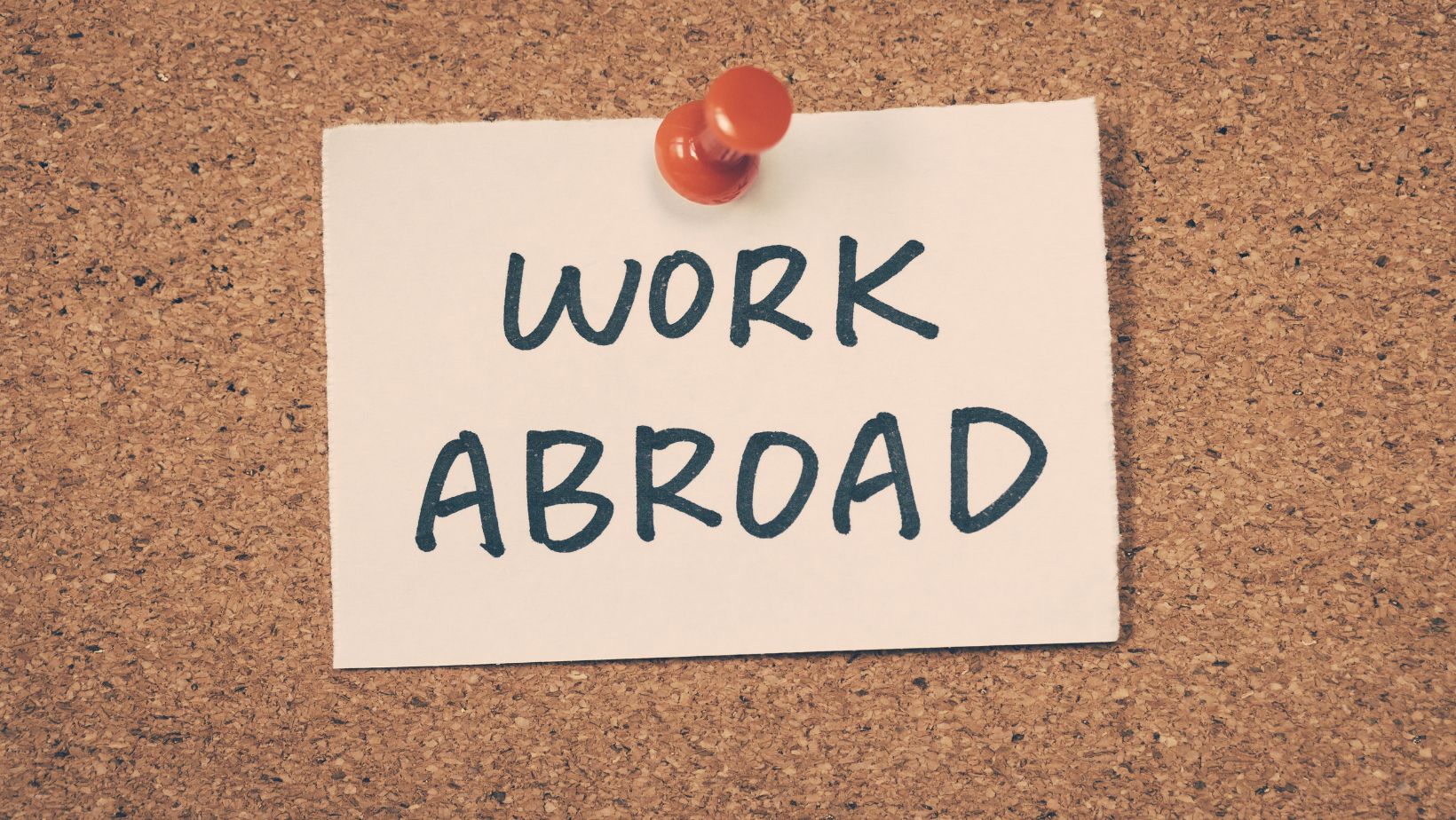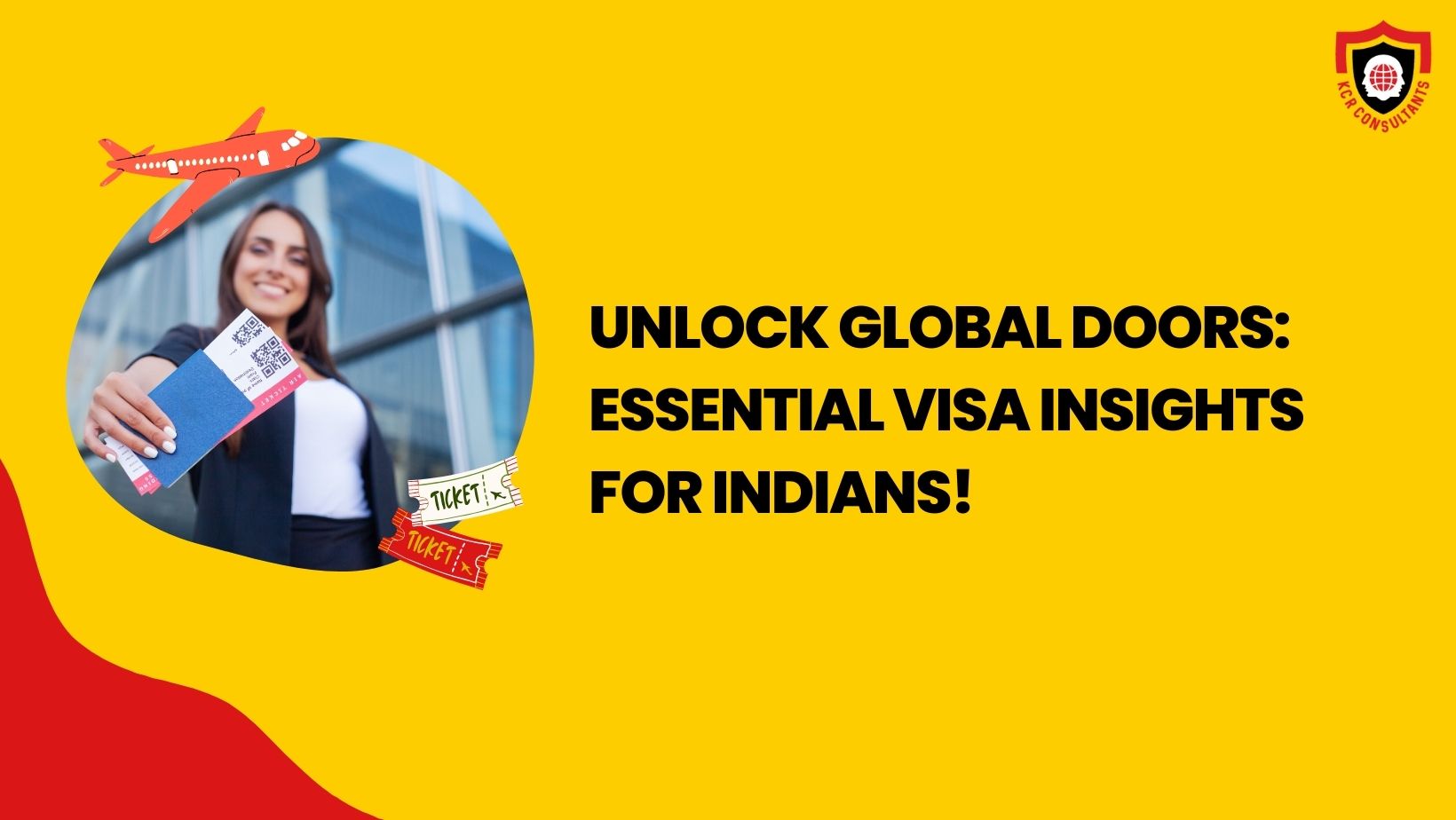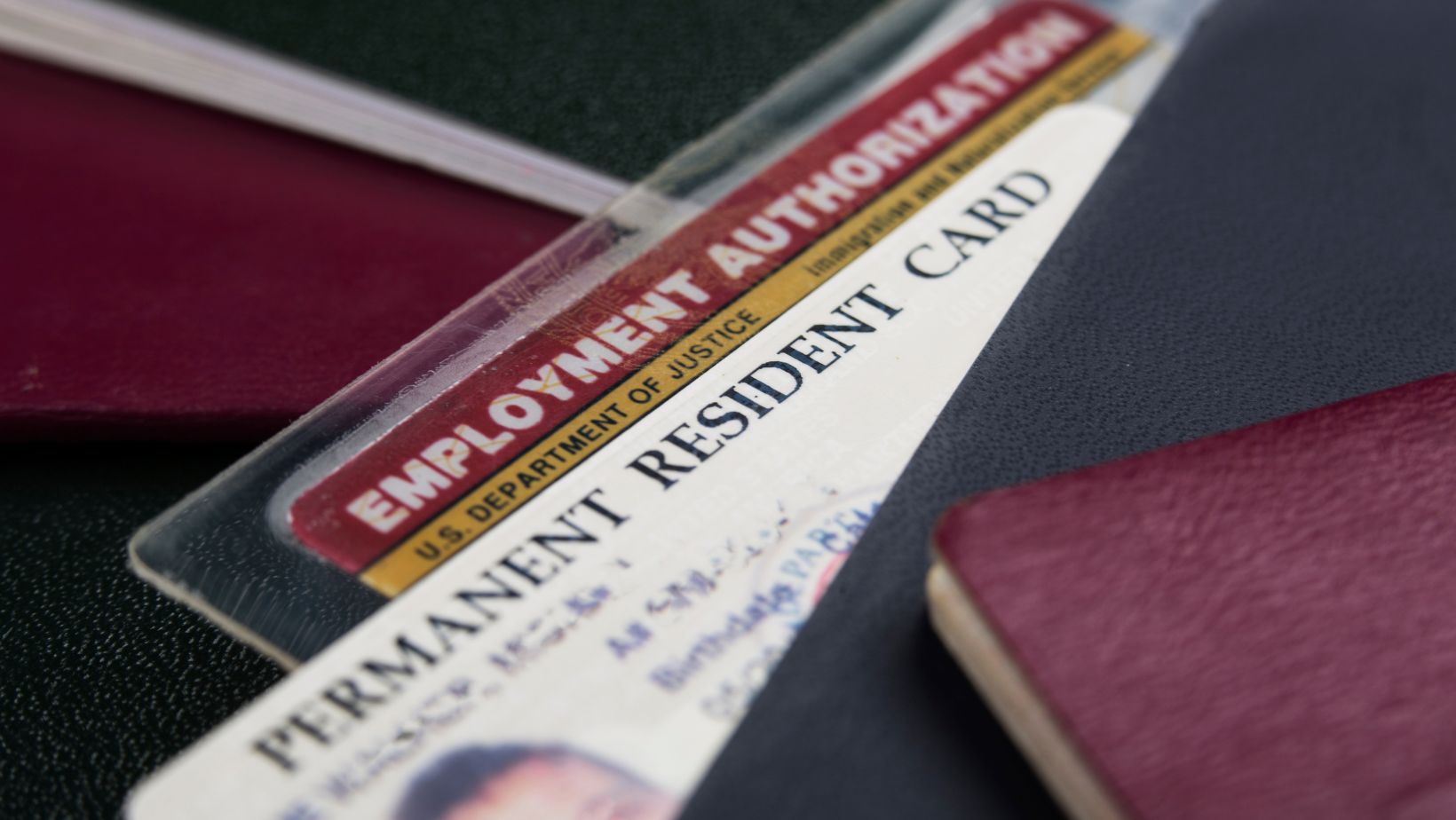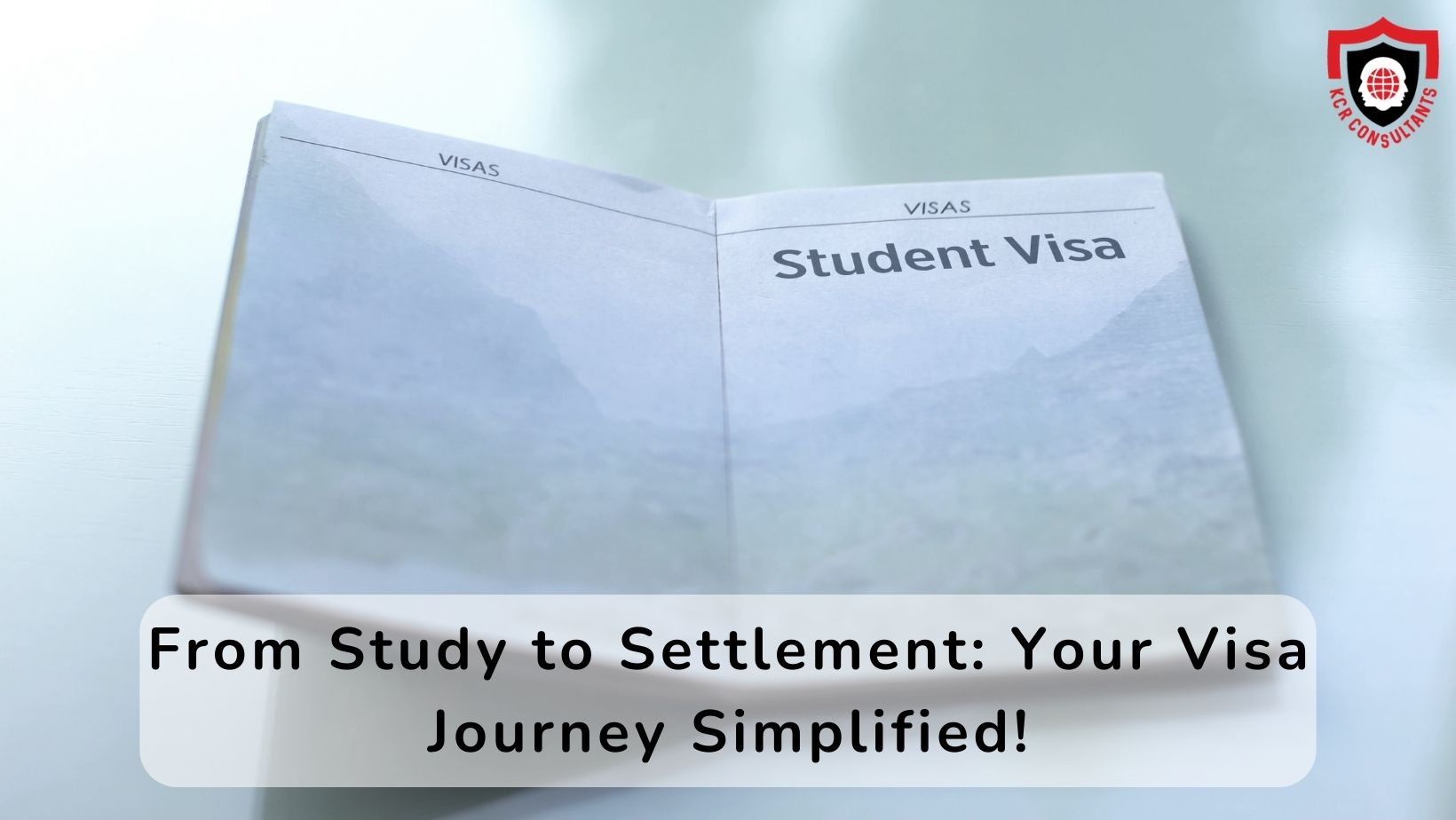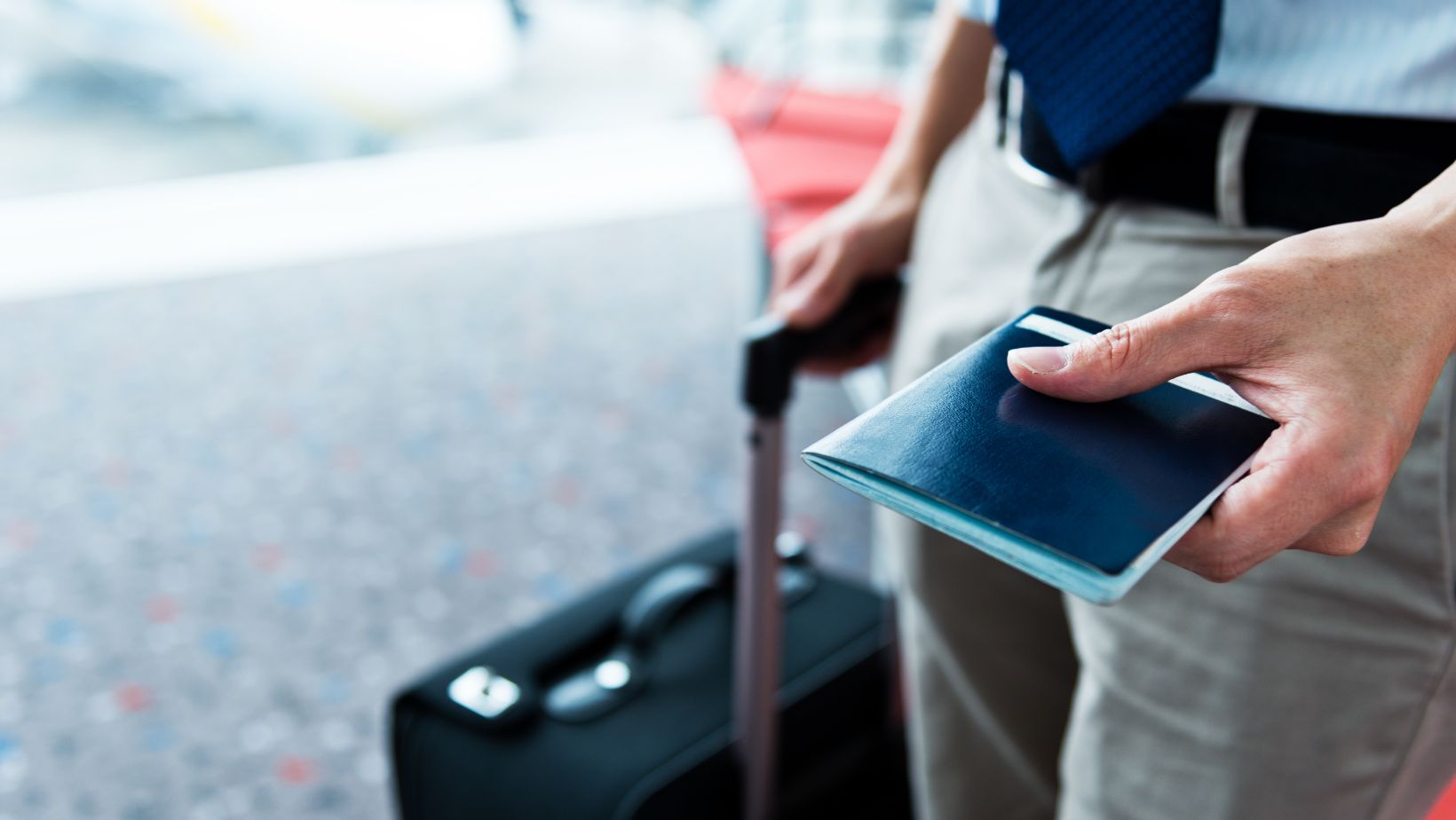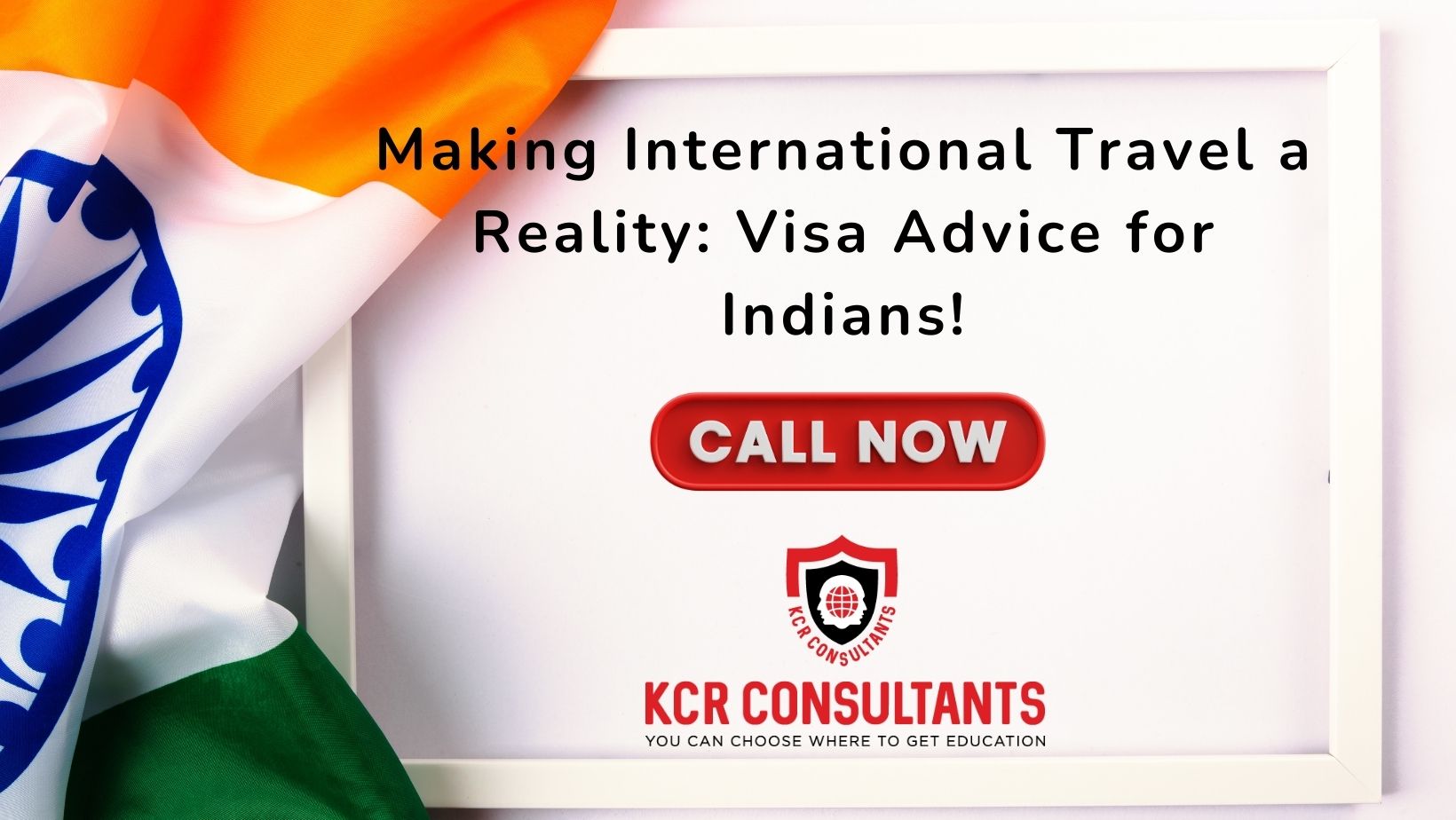Global Visa Navigator: A Comprehensive Guide for Indians Traveling Abroad
For countless Indians, the term ‘visa’ resonates with the hope of new opportunities, the thrill of exploration and the promise of a better future.
A visa is the key to unlocking these dreams, whether for pursuing higher education, seeking global work experiences, settling in a new country, or simply traveling for leisure or family visits.
A visa encompasses various types, each tailored to specific purposes such as studying, working, immigrating, or tourism.
In recent years, there has been a noticeable surge in the number of Indians exploring international horizons.
Popular destinations vary based on the purpose of travel. For higher education, countries like the United States, Canada, the United Kingdom and Australia are often at the top of the list, offering world-class universities and a plethora of academic opportunities.
These countries have specific student visa programs designed to accommodate the educational aspirations of international students.
Regarding employment, the United Arab Emirates, Singapore, Canada and the USA are highly sought-after for their robust economies and diverse job markets.
Each of these countries offers various types of work visas, catering to different professional skills and employment durations. For example, the H-1B visa in the USA is a popular choice for those in specialized professions seeking to work in America.
“Securing permanent residency is a key aspiration for numerous Indians, with destinations such as Canada, Australia and New Zealand being top choices owing to their welcoming immigration policies and elevated living standards.”
These countries offer P.R. visas through points-based immigration systems, which assess applicants based on age, education, work experience and language proficiency.
For shorter stays like family visits, business meetings, or tourism, Schengen visas for Europe, visitor visas for countries like the USA and Australia and specific tourist visas for destinations like Thailand and Singapore are common.
Each type of visa comes with its requirements and application procedures tailored to the nature of the visit.
The world of visas is diverse and complex, yet it is the gateway to many opportunities for Indians looking to broaden their horizons.
Understanding the various types of visas and the requirements of popular destinations is crucial for anyone embarking on this journey.
Diving further into this subject, we will uncover the complexities of various visa types, providing valuable insights and advice to assist in maneuvering through this vital phase in pursuing global ambitions.
Studying Abroad
Starting an educational journey abroad is a coveted dream for many Indian students and understanding the student visa requirements for popular destinations like the USA, UK, Canada and Australia is the first step in making this dream a reality.
Student Visa Requirements
USA: The United States typically requires Indian students to obtain an F-1 visa.
To qualify, students must be enrolled in an accredited educational institution.
An essential requirement includes providing sufficient financial support to cover tuition and living expenses. Additionally, students must demonstrate strong ties to India, ensuring their return post-studies.
U.K.: In the U.K., Indian students are required to secure a Tier 4 (General) visa.
They have an offer of admission from a licensed student sponsor, speak, read, write and understand English and have enough money to support themselves and pay for their course.
The visa application should be initiated three months before the course starts.
Canada: For Indian students in Canada, obtaining a study permit is essential.
To be eligible, they must have an acceptance letter from a recognized educational institution, demonstrate a clean criminal record and have adequate financial resources.
If needed, they must also undergo a medical exam and convince the immigration officer of their intent to leave Canada upon completing their studies.
Australia: For Australia, the Subclass 500 student visa is required.
This visa demands proof of enrollment in a course registered with the Commonwealth Register of Institutions and Courses for Overseas Students (CRICOS), proof of welfare arrangements if under 18, evidence of sufficient funds, English language proficiency and health insurance.
Process and Tips for Obtaining a Student Visa
- Prepare Early: Start the visa application process as soon as you receive your university acceptance letter. Visa processing times can vary, so giving yourself plenty of time is crucial.
- Gather Required Documents: This typically includes your passport, proof of acceptance, financial evidence, language proficiency proof and any country-specific documents.
- Financial Proof: It is essential to show that you possess the financial means to pay for your tuition fees, living expenses and return journey. This can be evidenced through bank statements, scholarship awards, or financial assurances.
- Language Proficiency: For non-English-speaking countries, proficiency in the respective language might be required. For English-speaking countries, tests like IELTS or TOEFL are usually necessary.
- Attend the Visa Interview: Be prepared for a visa interview where you will be asked about your study plans, choice of university, how you plan to cover your expenses and post-graduation goals.
- Health Checks and Insurance: Some countries require a medical examination. Additionally, it’s crucial to have health insurance coverage for your stay.
- Proof of Intent to Return: You may need to demonstrate ties to your home country, indicating your intent to return after your studies.
- Stay Informed on Visa Policies: Visa policies can change, so staying updated on your chosen destination’s latest requirements and procedures is essential.
By carefully following these steps and requirements, Indian students can smoothly navigate the process of obtaining a student visa, paving the way for a successful international educational experience.
Working Abroad
For many Indians, working abroad is an opportunity for professional growth and to experience new cultures and lifestyles.
Understanding the work visa details and processes for popular destinations is crucial for those looking to embark on this journey.
Work Visa Details for Popular Destinations
USA: The H-1B visa is a common choice for Indians looking to work in the USA.
It’s designed for specialty occupations that require theoretical or technical expertise. Another option is the L-1 visa for intra-company transfers.
Visa applicants must obtain a job offer from an employer in the U.S. willing to sponsor their visa application.
Canada: Canada provides a range of work visa options, such as the TFW Program and the International Mobility Program (IMP).
To obtain a work visa in Canada, a job offer from a Canadian employer and, typically, an LMIA is required to demonstrate that a Canadian citizen or permanent resident could not fill the position.
U.K.: In the U.K., a Tier 2 visa is offered to skilled workers with a job offer in a shortage occupation or from a licensed sponsor.
The points-based system requires candidates to meet specific criteria, including an appropriate salary threshold.
Australia: Subclass 482 under the TSS visa allows skilled workers to work in Australia in their nominated occupation for up to four years for their approved sponsor.
Applicants must have the skills to fill a position nominated by an approved business and meet English language requirements.
Germany: The E.U. Blue Card is a popular option for highly qualified non-EU citizens wishing to work in Germany. Applicants need a university degree and a job offer with a specific minimum salary. The Blue Card offers several advantages, like obtaining permanent residency after a certain period.
Process and Tips for Securing a Work Visa
- Secure a Job Offer: Most work visas require a job offer from a company in the destination country. This offer is often pivotal in the visa application process.
- Understand the Specific Visa Requirements: Each country has its requirements for work visas. Ensure you meet these criteria, including educational qualifications, work experience and, in some cases, language proficiency.
- Prepare Your Documentation: Gather all necessary documents, including your passport, job offer letter, educational certificates and any required legal and financial records.
- Labor Market Considerations: In some countries, like Canada, the employer may need to obtain an LMIA to hire a foreign worker.
- Please apply for the Visa: Complete the application form with accurate details and submit it with the required documentation. Be prepared to pay any application fees.
- Attend the Visa Interview: Many countries require an interview for a visa. Applicants must be prepared about their job, employer and reasons for wanting to work in the respective country.
- Health and Character Checks: Be ready for health examinations and police verification as part of the character assessment process for the visa.
- Be Aware of Visa Restrictions and Rights: Understand the rights and restrictions in connection with your work visa, such as travel limitations, work hours and the chances of applying for permanent residency.
- Keep Track of Visa Expiry and Renewal Procedures: Be mindful of your visa’s expiry date and the process for renewal or transition to other visa types, including permanent residency options.
By carefully navigating these steps and requirements, Indian professionals can successfully secure a work visa to their desired country, opening the door to exciting global career opportunities and experiences.
Immigration and Permanent Residency
For many Indians, the prospect of immigrating and obtaining permanent residency (P.R.) in a foreign country is a path to a new life filled with opportunities.
Countries like Australia, Canada and New Zealand are among the top destinations due to their high quality of life and immigrant-friendly policies. Understanding the P.R. visa requirements and the pathway from temporary to permanent residency is crucial in this journey.
P.R. Visa Requirements
Canada: Canada’s P.R. visa is often obtained through programs like the Express Entry system, Provincial Nominee Programs (PNPs), or the Canadian Experience Class (CEC).
Essential requirements include language proficiency (IELTS), educational credential assessment, work experience and a sufficient score in the Comprehensive Ranking System (CRS) for Express Entry.
Canada also values applicants with Canadian work experience or studies, which can significantly boost their CRS score.
Australia: The PR visa in Australia is typically accessed through the General Skilled Migration (GSM) program, which includes visas like the Skilled Independent Visa (subclass 189) and the Skilled Nominated Visa (subclass 190).
Candidates in Australia are evaluated based on factors such as age, proficiency in the English language, experience in skilled employment and educational background. The country employs a points-based system for assessment, where accruing higher points enhances the likelihood of being invited to apply for permanent residency.
New Zealand: New Zealand offers pathways to P.R., including the Skilled Migrant Category Resident Visa.
This points-based visa considers age, work experience, employability and qualifications.
A job offer from a New Zealand employer can significantly enhance an applicant’s prospects of securing P.R.
Pathway from Temporary to Permanent Residency
- Start with a Temporary Visa: Many immigrants initially enter countries like Canada, Australia, or New Zealand on temporary visas such as work, study, or provisional visas.
- Gain Local Experience: Having local work or study experience can be advantageous. For instance, in Canada, the Canadian Experience Class is tailored for those with Canadian work experience.
- Meet the Requirements: You must meet all the criteria for P.R., including language proficiency, work experience and health and character checks.
- Apply for PR: Once eligible, apply for P.R. through the appropriate immigration program. This often involves submitting an Expression of Interest (EOI) and being invited to apply.
- Keep Records: Maintain thorough records of your employment, tax filings and stay in the country, as these will be crucial for your P.R. application.
- Be Aware of Policy Changes: Immigration policies can change. Stay informed about the latest requirements and processes in your chosen country.
- Seek Professional Advice if Needed: Consult immigration experts or lawyers for guidance, especially for complex cases.
- Prepare for the Transition: Once you receive P.R., prepare. This might involve meeting residency obligations or planning for long-term settlements like housing and schooling for children.
By following these steps and meeting the requirements, Indian immigrants can successfully navigate the path from temporary residence to securing permanent residency in countries like Canada, Australia and New Zealand, paving the way for a new chapter in their lives.
Family Reunion Visas
Family reunion visas are crucial in reuniting families separated by international borders.
Various countries offer specific tickets to facilitate the reunion of family members. Understanding the options, criteria and application processes for these visas is essential for families looking to live together in a new country.
Overview of Family Reunion Visa Options
USA: The United States offers family-based visas, categorized as immediate relative and family preference visas.
Quick close keys include those for spouses, parents and unmarried children under the age of 21 of U.S. citizens.
Family preference visas are for more distant family relationships with U.S. citizens and some specified relationships with Lawful Permanent Residents (LPRs).
Canada: The family sponsorship program in Canada enables its citizens and permanent residents to sponsor various family members, including their spouse, common-law partner, conjugal partner, dependent children, as well as their parents and grandparents
The Super Visa is also available, particularly for parents and grandparents, offering long-term, multiple-entry visas.
U.K.: The U.K. provides family visas for joining a partner, parent, proposed partner, or child who is either a British citizen, settled in the U.K., or has refugee status or humanitarian protection in the U.K.
The requirements and length of stay vary depending on the relationship and the family member’s status in the U.K.
Australia: Australian family visas include partner visas, child visas, parent visas and relative visas.
These visas cater to different family members, including spouses, children, parents and other dependent relatives.
The process and requirements vary based on the visa subclass and the applicant’s relationship to the Australian sponsor.
Germany: Germany offers a reunion visa for spouses, same-sex partners and children of German residents, including E.U. citizens living in Germany. Applicants must prove the relationship and spouses must usually demonstrate basic German language skills.
Criteria and Process for Application
- Prove the Relationship: Applicants must provide evidence of their relationship with the sponsor, such as marriage or birth certificates for children and parents.
- Meet Financial Requirements: Sponsors must demonstrate they can financially support their family members without relying on public funds.
- Language Proficiency: Some countries, like Germany, require family reunion visa applicants to have basic proficiency in the national language.
- Health and Character Checks: Applicants may need to undergo health examinations and provide police certificates as part of the character assessment process.
- Apply from Home Country: In many cases, family members must apply for the family reunion visa from their home country and wait for approval before traveling.
- Prepare Documentation: Comprehensive documentation, including proof of relationship, sponsor’s financial stability and the applicant’s details, is crucial.
- Visa Interview: An interview may be part of the application process, where the consulate assesses the genuineness of the relationship and the Application.
- Understand the Visa Conditions: Each visa comes with specific conditions, such as the length of stay, work rights and whether the key leads to permanent residency.
By carefully navigating these steps and meeting the necessary criteria, family members can successfully secure a family reunion visa, paving the way to live together and build a life in a new country.
Business Travel
Business travel is a vital aspect of global commerce and networking.
For Indian professionals traveling abroad for business meetings, workshops and seminars, understanding their destination country’s specific visa requirements and guidelines is essential.
Let’s explore some key destinations and their requirements.
Visa Requirements for Business Travel
USA: For business travel to the United States, the B-1 visa is the standard option.
This visa is for individuals engaging in business activities like consultations, attending conferences, or negotiating contracts.
Applicants need to demonstrate the purpose of their trip, intent to return to India and financial stability.
U.K.: The Standard Visitor visa in the U.K. caters to business travelers. It’s suitable for attending meetings, conferences and training.
Applicants must show they have sufficient funds for their stay and a return ticket and refrain from receiving payment from a U.K. source.
Schengen Area: The Schengen business visa allows travel within the Schengen countries for business purposes.
Documentation proving an invitation from a company or an organization in the Schengen area is necessary, along with evidence of financial means and accommodations.
Canada: The Canadian Business Visitor visa is for those attending business meetings, conferences, or exploratory business visits.
Travelers must prove they have no intention of entering the Canadian labor market and their principal place of business and source of income is outside Canada.
Australia: The Business Visitor visa (subclass 600) in the Business Visitor stream is meant for business-related visits.
This includes making general business inquiries, negotiations, or participating in conferences.
Applicants must show they are visiting for business purposes and have enough funds to stay.
Country-Specific Guidelines
- Application Process: It involves completing an online form, submitting supporting documents and attending an interview.
- Documentation: Commonly required documents include a passport, invitation letters from overseas business contacts, proof of the business’s financial stability and travel itineraries.
- Proof of Ties to India: Demonstrating solid ties to India through employment, family, or property can help establish the intent to return.
- Financial Stability: Showing sufficient funds to cover the trip is essential. This can be through bank statements or financial guarantees from the host company.
- Health and Travel Insurance: Some countries require proof of health and travel insurance for the duration of the stay.
- Duration of Stay: Business visas typically have a limited time, aligning with the business event or meeting length.
- No Employment: It’s crucial to understand that business visas do not permit formal employment in the host country.
- Compliance with Visa Conditions: Violating visa conditions can have serious consequences, including denial of future visa applications.
By understanding and adhering to these requirements and guidelines, Indian professionals can ensure a smooth and successful business travel experience to various global destinations.
Tourism
Traveling for tourism opens up a world of diverse cultures, breathtaking landscapes and unforgettable experiences.
For Indian tourists looking to explore popular global destinations, understanding the tourist visa requirements and key application tips is essential.
Tourist Visa Information for Popular Destinations
USA: The B-2 visa is designated for tourism, vacation, or visiting friends and family in the United States.
Applicants must demonstrate their intent to return to India and their ability to cover expenses during their stay.
Schengen Area: A Schengen tourist visa allows travel within the Schengen countries in the E.U. area for up to 90 days within 180 days.
The Application requires proof of accommodation, a detailed itinerary and evidence of sufficient financial means for the duration of the stay.
U.K.: The Standard Visitor visa in the U.K. is suitable for tourism purposes. Tourists must show they can financially support their stay and afford the return journey.
They must also prove they will leave the U.K. at the end of their visit.
Australia: The Visitor visa (subclass 600) in the Tourist stream is for those traveling to Australia for recreation or to visit family and friends.
Applicants should provide evidence of their reasons for traveling and financial capacity.
Canada: The Canadian Visitor Visa (Temporary Resident Visa) allows tourists to visit Canada for a short time, generally six months or less.
Proof of financial support during the stay and ties to India are essential for the Application.
Singapore: Singapore offers a short-term tourist visa for Indian travelers.
Visitors must submit a completed application form, passport-sized photos and a letter of introduction.
Thailand: Thailand’s tourist visa caters to travelers wishing to visit briefly.
Along with the standard application documents, applicants might need to show evidence of hotel bookings and a return ticket.
Must-Knows for Tourist Visa Applicants
- Valid Passport: The passport needs to be good for at least six months from the intended return date.
- Complete Application: complete the visa application form accurately and provide all required documentation, including travel itinerary, hotel reservations and return flight bookings.
- Financial Proof: You must demonstrate sufficient funds to cover your stay. This can be through bank statements, payslips, or a sponsor’s financial documents.
- Travel Insurance: Some countries require tourists to have travel insurance covering their entire stay.
- Purpose of Visit: Be clear about the purpose of your visit and provide relevant supporting documents.
- Health Requirements: Be aware of health requirements, such as vaccinations or health certificates, especially during the COVID-19 pandemic.
- Respect Visa Duration: Stay within the duration permitted by your visa to avoid legal complications.
- Follow Visa Rules and Regulations: Abide by the specific tourist visa rules, which generally prohibit employment.
- Check for Visa Waivers or e-Visa Options: Some countries offer visa waivers or e-visa options for Indian tourists, simplifying the travel process.
- Consulate Interviews: Be prepared for a possible interview at the consulate or embassy as part of the application process.
By understanding these requirements and preparations, Indian tourists can confidently and quickly embark on their international travels, fully ready to experience the wonders of global tourism.
Family Visits
Visiting family abroad is a common reason for international travel among Indians.
Whether attending a family function, spending holidays, or simply reuniting, understanding the visa requirements and application process for such visits is crucial.
Visas for Visiting Family Abroad
USA: For visiting family in the United States, the B-2 visa is appropriate. It’s designed for those traveling to the U.S. for leisure, tourism, or family visits. Applicants need to demonstrate their ties to India and the temporary nature of their stay.
U.K.: The Standard Visitor visa allows Indians to visit family in the U.K. Applicants must prove they can support themselves during their stay and intend to leave the U.K. at the end of the visit.
Canada: The Canadian Visitor Visa (Temporary Resident Visa) is used for family visits. Similar to tourist visas, applicants must show sufficient funds for their stay and a letter of invitation from their family in Canada.
Australia: The Visitor visa (subclass 600) in the Family Sponsored stream caters to those visiting family in Australia. The Application should include an invitation from the Australian relative and evidence of the applicant’s financial and employment status in India.
Schengen Area: A Schengen visa under the visit family/friends category allows travel to the Schengen countries. Ensure the Application includes an invitation letter from the family member residing in the Schengen area and proof of relationship.
Application Process and Essential Documents
- Valid Passport: Make sure that your passport remains valid for a minimum period of six months following your anticipated date of return
- Visa Application Form: Appropriately fill in the form by ensuring all details are up-to-date and correct.
- Letter of Invitation: Have a letter of invitation from the family member you intend to visit. This letter should include details about the relationship, the purpose of the visit and the duration of your stay.
- Financial Proof: Provide evidence of your financial means to support your stay. This can include bank statements, income tax returns, or a financial undertaking by the host family.
- Proof of Accommodation: Show where you will stay during your visit. This could be a hotel booking or an address of the family member’s residence.
- Return Ticket: Proof of a return ticket to India is often required to demonstrate your intent to return after your visit.
- Travel Insurance: A few countries may require proof of travel and health insurance covering the duration of your stay.
- Proof of Ties to India: Documents that show your ties to India, such as employment details, property ownership, or family ties, can strengthen your Application.
- Photographs: Passport-sized photographs as per the specific country’s visa requirements.
- Health and Character Requirements: Depending on the destination, you may need to undergo a health examination or provide a police clearance certificate.
- Visa Interview: Be prepared for a visa interview, where you’ll need to explain the purpose of your visit and your plans to return to India.
By carefully preparing and submitting the required documentation and knowing the specific visa requirements for the country you intend to visit, you can ensure a smooth application process for your family visit visa.
Conclusion
Navigating the world of visas can be a complex but essential part of traveling or moving abroad for Indians.
Whether the purpose is education, work, permanent residency, family reunion, business, tourism, or family visits, understanding each destination country’s specific visa requirements and processes is crucial.
Summarizing the Key Points
- Studying Abroad: Secure a student visa by obtaining acceptance from an educational institution, proving financial stability and meeting language proficiency requirements.
- Working Abroad: Work visas require a job offer from a foreign employer, relevant qualifications and sometimes language proficiency, depending on the destination country.
- Immigration and Permanent Residency: Countries like Canada, Australia and New Zealand offer P.R. visas through points-based systems, prioritizing factors like age, work experience and language skills.
- Family Reunion Visas: To reunite with family members abroad, one must prove the relationship, meet financial requirements and follow specific application procedures depending on the country.
- Business Travel: Business visas are necessary for attending meetings, workshops, or seminars abroad and require proof of the business’s financial stability and a detailed travel itinerary.
- Tourism: Tourist visas allow short-term travel and require proof of financial means, accommodation and a return ticket.
- Family Visits: Visas for visiting family abroad often require an invitation letter from the family member, proof of financial capacity and evidence of financial stability.
Final Thoughts and Tips for Visa Applicants
- Start Early: To accommodate delays, prepare your visa application well before your intended travel date.
- Gather Accurate Information: Ensure you have the correct and current information about visa requirements for your destination country.
- Complete Documentation: Prepare and organize all required documents before applying. Incomplete applications are often the leading cause of visa denials.
- Financial Stability: Be ready to prove economic sufficiency for your stay, a key concern for most visa types.
- Understand Visa Conditions: Know the rights and restrictions of your visa type. Violating visa conditions can lead to severe consequences.
- Prepare for Interviews: Be honest and transparent in your responses during visa interviews, as consulates assess the genuineness of your Application.
- Stay Informed: Visa policies and requirements can change. Stay updated on the latest information regarding visa processes for your intended destination.
- Seek Expert Advice if Needed: Don’t hesitate to consult immigration experts or legal advisors, especially for complex visa categories or situations. Being thorough in your preparation can enhance your chances of a successful permit application, paving the way for a smooth and fulfilling international experience.

